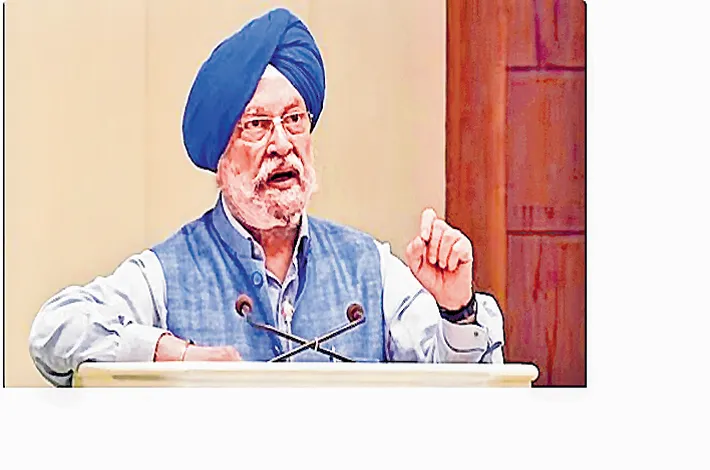Safeguarding India’s energy needs top priority, says Puri
27-09-2025 12:00:00 AM

No sanctions on Russian oil; we’ll keep buying
Safeguarding India’s energy needs is the top priority of the government despite marathon negotiations on trade policies continuing between the US and India, Union Petroleum and Natural Gas Minister Hardeep Singh Puri said on Friday.
President Trump’s additional tariff of 25% was imposed as a punishment for India’s purchase of Russian oil. In the last fiscal year, India bought $56 billion worth of crude from Russia. “There is enough oil available in the world today, but if crude supplies are disrupted, the world will face serious consequences, and until this moment, there are no sanctions on buying oil from Russia, and we will continue to buy Russian oil,” Puri told newspersons.
India’s crude imports are meant to ensure affordable energy costs to the local consumer. The country will continue taking necessary steps to safeguard its national interests, energy needs and economic security. India has asked Indian companies to buy crude at lower prices wherever available. Countries, including the EU, Turkey and buy oil from Russia.
OMCs IOC, HPCL and BPCL autonomously decide the source of the crude oil they buy for refining, Puri said, emphasising that the government does not interfere in their independence and professional decisions. The Union minister said he expects crude prices to trade between $65 and 68 a barrel.
Referring to Iran and Venezuela, the minister said, “The government is moving in the right direction, and as a responsible member of the international community, India has always complied with sanctions. Globally, the US is the largest producer of crude oil, pumping over 13 million barrels a day. Russia is the second largest supplier of crude at 10 million barrels a day. Today, Puri said, the discounts offered by Russia are not that steep. Yet, energy is unavoidable, and if we stop buying crude from Russia, we will have to drastically cut consumption.
Energy experts have repeatedly called for preserving and strengthening the multilateral rules-based global trading system. Strengthening the trading system, analysts said, would require restoring a fully functioning WTO dispute settlement mechanism. It will also require making more progress on dealing with trade restrictions and developing internationally acceptable rules and guidelines.
As Opec Secretary General Haitham Al Ghais pointed out, current and future data trends demonstrate that hydrocarbons will remain vital for decades. Oil is not only the main energy source for the global economy today, it is expected to retain the largest share of the global energy mix in 2050 at around 30%–when demand is set to exceed 123 million barrels per day. The global energy sector stands at a critical juncture, requiring significant investment in all energies and technologies.








